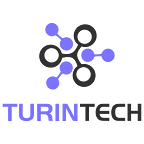evoML success stories: Optimising bank stress testing with advanced AI — TurinTech AI
Business Challenge
Stress testing is commonly used by banks to evaluate their financial resilience under difficult economic conditions and crisis scenarios. Stress tests allow banks to ensure that there is sufficient capital to insulate themselves against economic challenges. Governments and regulatory bodies across the globe have imposed strict regulations in terms of stress testing to ensure the robustness of the entire banking system. For instance, the Bank of England has three types of stress tests for UK banks and other financial institutions. Banks that do not perform satisfactorily in stress tests would be required to take steps to strengthen their financial position.
Stress tests often require making sense of large datasets, which can be challenging. Transparency of data-driven decision making is also of utmost importance to ensure regulatory requirements are met satisfactorily. The predictive capacity of AI and machine learning can bring significant value-add to processes that are used for stress testing banks.
The Company
TurinTech worked with a UK commercial bank to develop a sustainable and scalable machine learning solution for their stress testing tasks.
🔢 Data
The bank was working with publicly available macroeconomic data, which included variables such as GDP, unemployment rate, and interest rate. The bank also had data on its own lending history.
🛠 State of the existing system
The bank was testing a machine learning-based approach to develop stress testing models based on their data, but no models had reached deployment level.
🚫 Bottlenecks to implementation
- Complex datasets: The macroeconomic data gathered by the bank had several variables, thereby increasing the number of features for the model. This led to model overfitting during the in-house model building process.
- Insufficient explainability: Since the bank had to meet regulatory requirements, explainability of models was of high priority. The models that the bank had at hand met some explainability criteria, but there was definite room for improvement.
- Long timelines for development: The in-house process to train and test models was extremely time consuming, making the deployment process unsustainable.
evoML for Stress Testing
evoML integrates the entire data science pipeline onto a single platform, automating the development and optimisation of machine learning models. With evoML, the bank was able to rapidly prototype with additional AI/ML modelling capabilities and strengthen their forecasting.
Time-to-deployment reduced from months to weeks
evoML is truly the “Swiss army knife” of automated machine learning model development. The platform augmented the position of the bank’s data science team, giving them a robust tool to arrive at conclusions faster and with better precision. With evoML, the bank managed to develop, evaluate, and deploy a model within weeks.
Intelligent feature engineering to get the best out of complex datasets
The bank had a range of variables they wanted to use for the stress testing tasks, but there was not enough historical data per each variable. This led to model overfitting during the in-house model building. evoML offers a range of feature selection and engineering options, which allowed the team to critically evaluate the value of each variable and filter out any “noise”. evoML feature engineering ultimately led to higher model accuracy.
Advanced explainability for improved regulatory compliance
evoML provides a range of explainability metrics to users, including information on data imbalances and how features were generated, which the bank could leverage to get a better sense of the generated models. Having greater insight into the models’ decision-making process made the entire pipeline much more transparent and explainable.
Special note
evoML also evaluated the possibility of drawing insights from unstructured text data in stress testing, which was made possible with the platform’s LLM features ( LLM stands for Large Language Model, a type of deep learning algorithm used to draw insights from text data). TurinTech’s team looked at sources such as news articles, social media data, and company annual reports to see how information in these data sources can be used to better anticipate and prepare for future economic trends.
Follow this space for more updates on evoML’s ever-evolving LLM capabilities!
Originally published at https://www.turintech.ai on May 31, 2023.
